Lesson Four | SDG #4: Quality Education
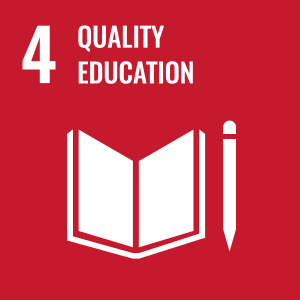 In this lesson, students explore United Nations Sustainable Development Goal #4: Quality Education. Students will learn about why access to quality education is an essential human right that promotes life-long learning opportunities. They will identify and discuss some of the barriers (economic, political, and social/cultural) faced by youth in different contexts through video clips, reading personal stories, and engaging in additional research activities.
In this lesson, students explore United Nations Sustainable Development Goal #4: Quality Education. Students will learn about why access to quality education is an essential human right that promotes life-long learning opportunities. They will identify and discuss some of the barriers (economic, political, and social/cultural) faced by youth in different contexts through video clips, reading personal stories, and engaging in additional research activities.
Students will examine Article #26 of the Universal Declaration of Human Rights and discuss whether they would change any part of the statement (and why). Then, students will work collaboratively to develop a proposal for achieving greater access to quality education in specific local or global communities. In this activity, students will consider what they have learned about the impact of education on people’s lives and describe how their proposal would advance efforts to reach the targets of SDG #4.
Lesson Plans for Heritage Language Speakers
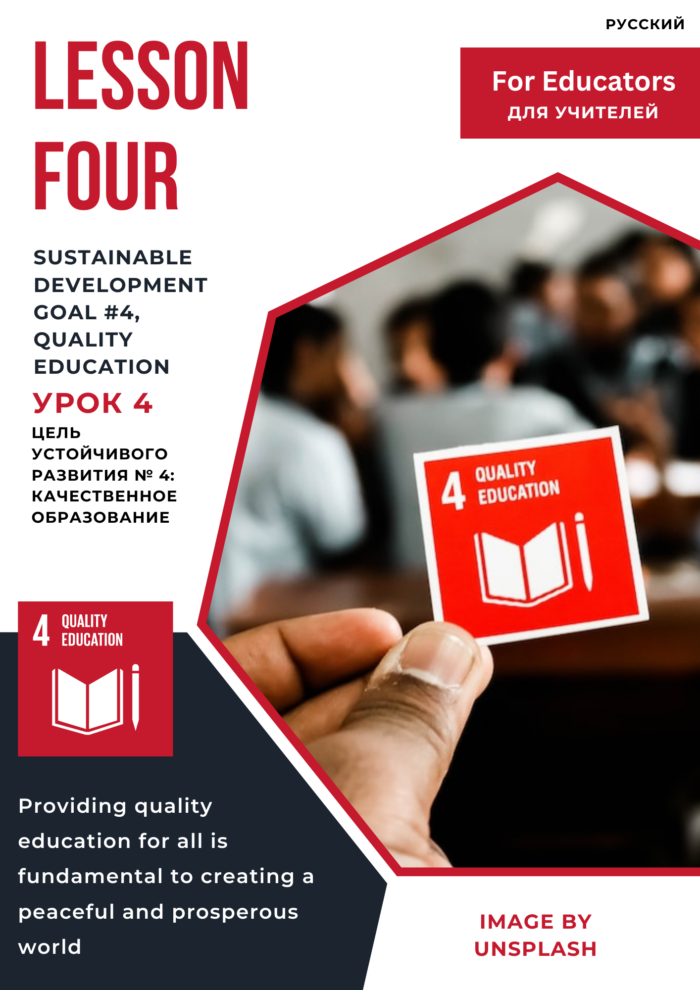
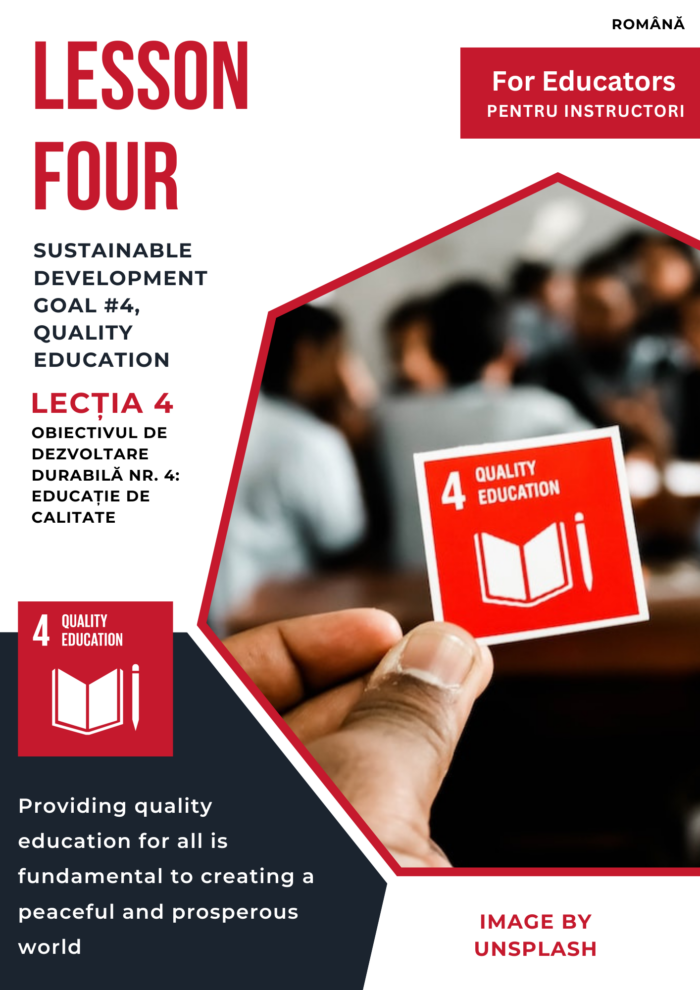
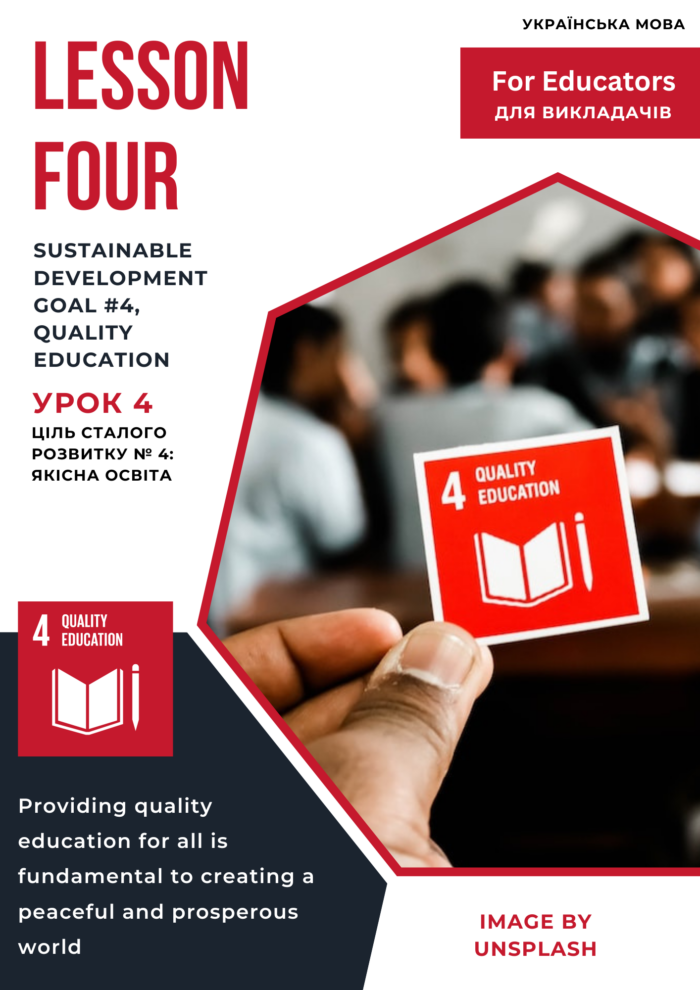
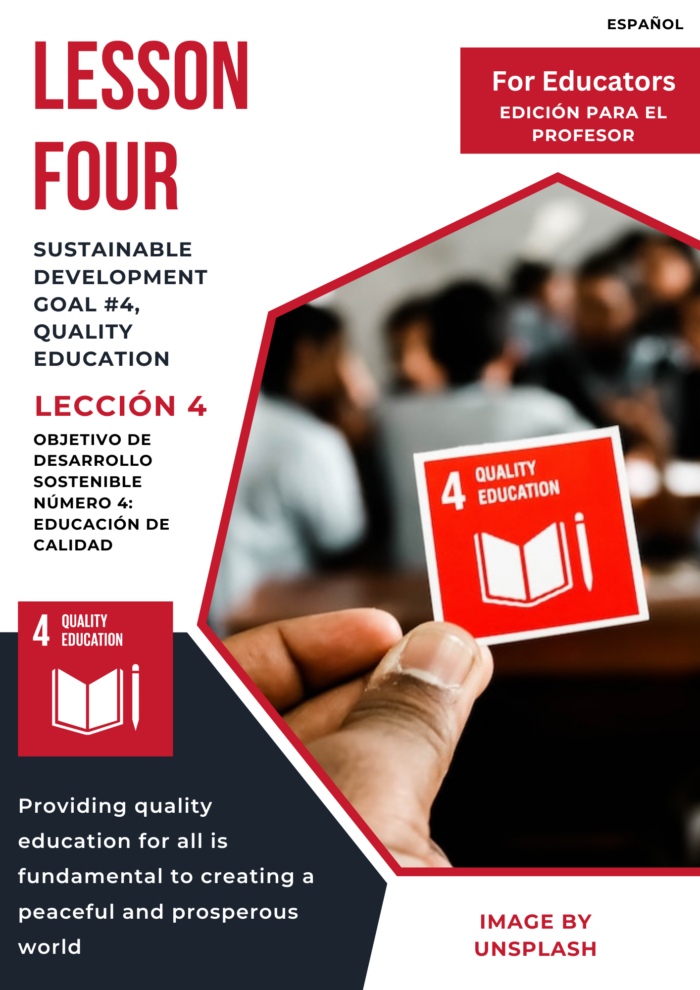
For full access to the translated Lessons and Supplemental Documentation, head to the
OER Commons Hub
Attribution and License
Attribution
This Open Educational Resource, Cultivating Global Competence through the United Nations Sustainable Development Goals, was developed by Ryan Hauck, Michele Anciaux-Aoki, Julianna Patterson, Gloria Kuzmenko-Latmier, Ina Chong, and Global Classroom, World Affairs Council – Seattle.
Cover image by Julianna Patterson from Canva.
Sustainable Development Goals images copyright United Nations. All rights reserved. Used pursuant to fair use.
Translations by:
Larisa Shuvalova
Iryna Novachuk
Inna Shynshyn
Nathan Marks
Brandon Severance
Otilia Baraboi
Ileana Marin
Alexey Kuznetsov
Pedro Lopez-Chaves
License
Except where otherwise noted, Cultivating Global Competence through the United Nations Sustainable Development Goals, copyright World Affairs Council – Seattle, is available under a Creative Commons Attribution-NonCommercial License. All logos and trademarks are property of their respective owners. Sections used under fair use doctrine (17 U.S.C. § 107) are marked.
This resource may contain links to websites operated by third parties. These links are provided for your convenience only and do not constitute or imply any endorsement or monitoring by the World Affairs Council. Please confirm the license status of any third-party resources and understand their terms of use before reusing them.